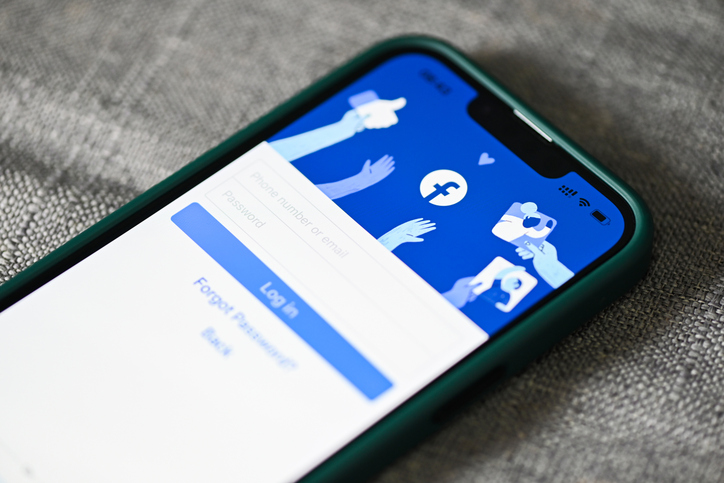Social media can still be a force for good, as I found out last weekend when we woke up with an unexpected visitor in our garden: a beautiful white, crested chicken. In the old days, reuniting lost animals with their owners could be a tricky task, involving phone calls to the RSPCA and local authorities, checking lampposts for ‘lost pet’ posters and keeping an eye on the animal. This time, I logged onto our village’s Facebook group and found a ‘missing’ post from the chicken’s worried owners. I messaged them and they came round to collect her, bouncing off home full of relief and joy. The whole thing was sorted out in less than five minutes. Thank goodness for Facebook.
Before long, my Facebook feed was becoming a joy again, thanks to these local groups
Social media isn’t always a place of happiness. Facebook, and X, often more closely resemble a cesspit. Increasingly cynical algorithms seem to favour divisive, trolling posts, fear-mongering news stories and highly questionable ‘information’. Sites that were once a nice way to keep up with your friends and make new ones are becoming places to make new enemies, as you’re dragged into another tetchy, circular discussion about Gaza or grooming gangs with strangers who’ve also been manipulated to respond to controversial content.
These platforms now offer a toxic, distorted view of the world, so it’s easy to lose faith in humanity as you scroll. Like a lot of people, I’ve come close to deleting my accounts and walking away completely. But then I found a corner of social media that’s become a daily tonic for me: local neighbourhood Facebook groups. These informal, community-run groups allow residents to discuss parochial day-to-day matters like fetes, traffic issues, window cleaner recommendations, the opening hours of local shops, and, indeed, lost chickens.
These local issues are rarely as important or grave as the stuff we see on the news. That’s their charm. As the world has become scarier, I’ve increasingly enjoyed the discussions in my local Facebook groups. I have even joined groups for farther-flung towns and villages to get more of this neighbourhood content on my feed.
Now, my Facebook feed has become joyful again, thanks to these local groups. I sigh with relief that a family in a Yorkshire village found their lost tortoise; I rubberneck as neighbours in Norwich bicker about noisy parties, or as people in Brighton grass up the poor service in their local restaurant. I chuckle as people lose their minds about parking on a high street in Kent. And then I smile at a wholesome post about somebody paying for their gran’s shopping in the Co-op when her card wouldn’t work.
Facebook is beginning to present a different world to me – one that feels more familiar and nice. Gorgeously trivial content about areas I’ve never visited and probably never will floods my timeline. The minutiae of matters in distant districts is even more refreshing and reassuring than local news, because there’s less at stake when it’s not your neighbourhood being discussed.
Compared to posts about bloodshed in the Middle East, fighting between Russia and Ukraine, or race riots in Britain, the drama in these groups is normally stress-free and low stakes. Following them is a regular reminder that, for all the terrifying things going on in the world, there are also local communities who can pull together as much as they can bicker.
I’ve nudged the algorithm by regularly pressing ‘like’ on posts from these groups, so Facebook shows me more local content every day. Now, I rarely see agitating posts about global conflict, divisive topics or chancer politicians. Instead, I get these wholesome, relaxing snapshots of local life, in all its mundane and petty brilliance.
So I think I’ll hang around on Facebook a little longer, because it’s reminded me what this country is really about. Also, you never know when you’ll wake up and find a crested chicken pecking her way around your garden.







Comments